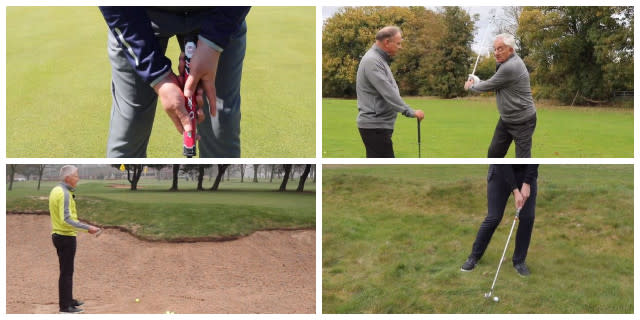Every Golfer Is a Referee
As someone who has become increasingly involved with the Rules of Golf over the past ten years I am often asked whether I am interested in becoming a golf referee.
This has never been my intention. I have taken the PGA Advanced Rules and Refereeing course, and the subsequent examination, to enhance my credibility as a Rules expert, but I have never had any interest in officiating. My main aim is to help others improve their understanding of the Rules.
However, the truth is that I am a golf referee, and if you play competitive golf then so are you! What justification do I have for saying this? Because, in all stroke play competitions, the Rules impose a responsibility on you to protect the interest of every other entrant, by ensuring that anyone that you are playing with fully complies with the Rules. This does not just apply to the player’s marker but anyone else in the competition that witnesses a breach of the Rules by any other competitor.
Decision 33-7/9 spells this out;
Competitor Who Knows Player Has Breached Rules Does Not Inform Player or Committee in Timely Manner
The responsibility for knowing the Rules lies with all players. In stroke play, the player and his marker have an explicit responsibility for the correctness of the player's score card.
There may, however, be exceptional individual cases where, in order to protect the interests of every other player in the competition, it would be reasonable to expect a fellow-competitor or another competitor to bring to light a player's breach of the Rules by notifying the player, his marker or the Committee.
In such exceptional circumstances, it would be appropriate for the Committee to impose a penalty of disqualification under Rule 33-7 on a fellow-competitor or another competitor if it becomes apparent that he has failed to advise the player, his marker or the Committee of a Rules breach with the clear intention of allowing that player to return an incorrect score.
You will note, in the first sentence of this Decision, that as well as the player, the marker has an explicit responsibility for the correctness of the player’s score. And yet, we have all played rounds of golf where the marker has no clue as to how many strokes the player has taken on a hole. I am sure that we have all witnessed occasions where a marker has not filled in the player’s score card for several holes and just asks retrospectively how many strokes he had taken. Part of Rule 6-6a states;
After each hole the marker should check the score with the competitor and record it.
Note the word ‘check’. The implication is that the marker should be counting the player’s strokes and confirming the total with him or her at the end of each hole.
Players do not have the same responsibility in match play, where there is no concept of protecting the interests of other competitors, because only the players on the two sides are involved. So, players may choose to ignore breaches of the Rules by their opponents. However, even in match play, players must not agree to exclude the operation of any Rule or to waive any penalty incurred, or they will be disqualified under Rule 1-3. An example of this is Decision 1-3/4;
Failure of Players to Apply Known Penalty
Q. In a match, a player discovers at the 2nd hole that he has 15 clubs in his bag contrary to Rule 4-4a, but his opponent refuses to apply the penalty. The extra club is declared out of play and the match continues. The Committee disqualifies both players. Is this correct?
A. Yes. Since the players agreed to waive the penalty, they should be disqualified under Rule 1-3.
I hope that this article encourages you to ‘referee’ your fellow competitors more diligently in stroke play competitions. It is your duty to all the other competitors. Of course the best way to do this, in order to avoid the risk of an unpleasant incident, is to stop a player before he breaches a Rule. Giving information on the Rules is not advice and is to be encouraged.
Wishing you good golfing.
Related Content:
Article from Barry Rhodes author of the book, ‘999 Questions on the Rules of Golf 2016’
Barry is author of the book, ‘999 More Questions on the Rules of Golf 2016’ and writes a regular blog of miscellaneous content on the rules of Golf at www.barryrhodes.com
Related Video
Comments
Barry Rhodes
Barry is author of the book, '999 Updated Questions on the Rules of Golf 2012 - 2015' and writes a regular blog of miscellaneous content on the rules of Golf at www.barryrhodes.com
Latest Articles




















